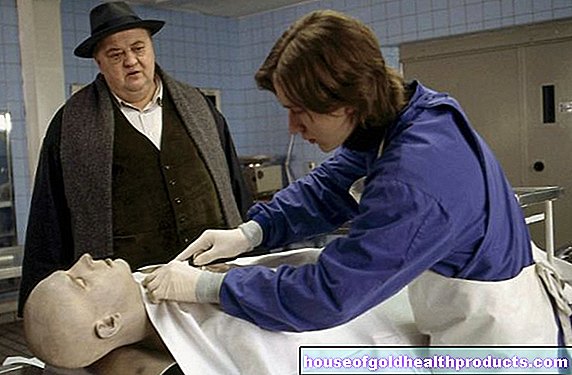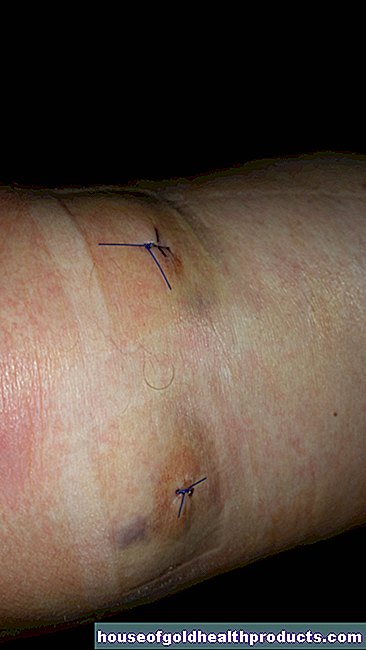Intervertebral disc operations: rushing under the knife
Christiane Fux studied journalism and psychology in Hamburg. The experienced medical editor has been writing magazine articles, news and factual texts on all conceivable health topics since 2001. In addition to her work for, Christiane Fux is also active in prose. Her first crime novel was published in 2012, and she also writes, designs and publishes her own crime plays.
More posts by Christiane Fux All content is checked by medical journalists.Many herniated discs are operated on without emergency. The patient is at risk of permanent complications. Nevertheless, those affected come under the knife far too often. This is proven once again by a study by scientists from Hamburg.
Working men in particular often undergo intervertebral disc surgery too quickly. They fear that the more drawn-out conventional therapy will put them at a disadvantage in their careers. Scientists from the Hamburg Center for Health Economics (HCHE) came to this conclusion when they evaluated a survey of around 6,000 patients who had had intervertebral disc surgery between 2014 and 2015.
Every third person operates prematurely
A third of those questioned had had an operation without previously exhausting conventional treatment approaches such as physiotherapy, massages and pain therapy such as injection treatments. These measures are aimed at alleviating the symptoms until the herniated disc disappears on its own and with it the painful nerve irritation.
Such a treatment strategy should take place over a period of at least six to eight weeks. It delivers results that are comparable to those of an operation - without the associated risks. After all, every tenth patient who is operated on on the intervertebral disc suffers long-term complications.
When to have an operation
An operation is usually only immediately necessary if the herniated disc presses on the spinal cord and thus, for example, causes paralysis or causes control of the bladder function to be lost. In the worst case, the affected nerve can die.
Obtaining a second medical opinion can obviously prevent hasty operations in many cases. "This shows how important it is to expand the corresponding advisory services," explains Prof. Matthias Kaufmann from HCHE.
Common backache
Back pain is common. In a survey by the Robert Koch Institute, depending on age and gender, around 50 to 70 percent of those surveyed stated that they had suffered from back pain within the previous twelve months. It affects people between the ages of 40 and 60 particularly often.
Pain in the lower back is one of the most common reasons for sick leave and early retirement. A herniated disc is rarely the cause of the symptoms. Much more often, muscular tension is the cause of pain in the lower back.
Source: Bäuml M. et al .: Intervertebral disc operations - patient experiences, indication quality and emergency coding. Health Monitor 2016.
Tags: laboratory values tcm teeth





























